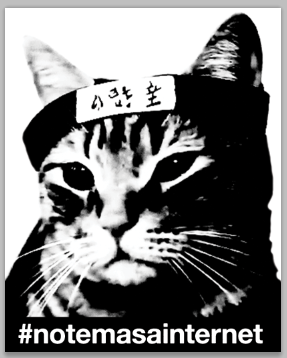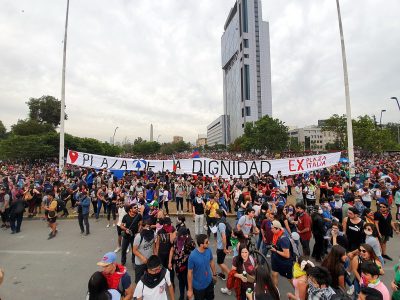The first Latin America and the Caribbean Netizen Report was researched, written, and edited by Juan Arellano, Renata Avila, Ellery Biddle, Firuzeh Shokooh Valle, and Silvia Viñas. The idea of compiling a Netizen Report for Latin America and the Caribbean came about during the recent Global Voices Summit as an effort to shed light on the numerous threats to an open Internet in the region.
The first Netizen Report for Latin America and the Caribbean focuses on recent legislation that affects the fundamental rights of Internet users in the region. Over the last two months, the governments of various countries–Costa Rica, Peru, and Brazil, among others–have considered bills that affect freedom of expression, access to information, anonymity, and privacy online. Focused on dangers and criminal activity on the Web, these legislative initiatives portray the Internet as a lawless space where users run a wide range of risks. This is why we've chosen to begin this report with “Don't Be Afraid of the Internet,” a campaign that is looking to reverse this negative message.

Image from the “Don't Be Afraid of the Internet” campaign by NGO Derechos Digitales. Image used with permission.
Mainstream narratives often frame the Internet as a criminal space, dominated by piracy and insecurity. This kind of discourse generates fear in users–and it is precisely what legislators use to promote reforms that threaten Internet freedom, without educating the public about what rights may be sacrificed in the name of security. The Chilean NGO Derechos Digitales (Digital Rights) has launched the #NoTemasaInternet [es] (Don't Be Afraid of the Internet) campaign with the goal of empowering citizens by giving them tools to enjoy, without fear, freedom of expression online: “The Internet is a space in which we can create and disseminate ideas freely. That freedom not only comes from the hand of technology, but also from human rights which guarantee it.” More information on the #NoTemasaInternet [es] website.
Access to knowledge
In Brazil, the Marco Civil da Internet [pt] (Civil Regulatory Framework for the Internet), a “bill of rights” for Internet users under consideration in the Brazilian Congress, has generated much debate over the last few months. The law, progressive and unique worldwide, emphasizes the protection of fundamental rights online, aiming to strike a balance between the interests of users, businesses, and government regarding matters such as copyright, file sharing, P2P networks, etc. Originally, the Marco Civil was going to be voted on by a special congressional committee on August 8, but now will be taken up on September 19. More coverage on ARTICLE 19.
Researchers at the University of Palermo's CELE (Center for Studies on Freedom of Expression and Access to Information in Buenos Aires, Argentina) presented an ‘amicus curiae‘ (“friend of the court“) brief before the Constitutional Court of Colombia amid the revision process for Bill 1520, also known as “Lleras Law 2.0″, which reforms the country's copyright system and would interfere with access to information for Internet users. The document puts forth four key concepts for analyzing the constitutionality of any rule in the context of content use on the Internet: efficiency and innovation, proportionality, authorized uses, and chilling effects. The complete brief is available on the CELE website.
Censorship
On July 10, Costa Rica approved a series of reforms to the penal code that create new criminal offenses (Law 9048 [es]) and severely restrict freedom on the Internet, alarming netizens and journalists. These reforms will eliminate for Internet users the option of supplanting their identities with avatars, pseudonyms, and even images. Another provision widely criticized by activists is the criminalization of the “spreading of false news,” which has been used to justify the imprisonment of a Twitter user for disseminating rumors surrounding a bank. More coverage on Global Voices.
In Argentina, during a speech in a facility belonging to Argentinian oil company Yacimientos Petrolíferos Fiscales (Treasury Petroleum Fields), President Cristina Fernández de Kirchner proposed the creation of a law of public ethics [es] for the practice of journalism: “We need a public ethics law [for the] fourth estate once and for all in Argentina. Not so they say nothing; on the contrary, simply to show if they receive money from some company or if they have some political agenda.” Her proposal caused numerous reactions from bloggers and Argentinian journalists. More coverage on Global Voices.
Cybersecurity
CONATEL [es], the entity in charge of regulating telecommunication services in Ecuador, issued a resolution that poses a serious threat to the online privacy of Ecuadorian users. Resolution TEL-477-16-Conatel-2012 [es] treats IP addresses as public information, despite regulating important aspects for Internet users such as levels of quality and service. Before implementing this controversial measure, the Ecuadorian government created a joint task force [es] with civil society experts in order to initiate dialogue and consider modifications to the resolution, and even used electronic means of communication throughout these discussions such as video chats alongside face-to-face meetings. Nevertheless, the Minister of Telecommunications for Ecuador has stated that they don't expect short-term modifications in the adopted regulation.
A piece of similar legislation is making its way through Peru's National Congress. The proposed Computer Crime Law [es], which aims to modify the Penal Code, would put personal information as well as privacy and secrecy of communications at great risk. The measure has received a forceful response from civil society against the provisions, as they would criminalize normal activities on the Internet and leave the personal information of users in a state of total vulnerability. Fifteen non-governmental organizations that defend digital rights submitted an open letter opposing the legislation to the National Congress. In addition, human rights organizations such as APRODEH (Pro Human Rights Organization) expressed their rejection [es] of the legislation, and citizens have sent more than 5,000 letters opposing the law. More coverage on Global Voices.
In Peru as in Ecuador, these provisions conflict with those rights, recognized by the constitutions of both countries, that protect the privacy of communications.
Thuggery
On the morning of August 16, the Minister of Foreign Affairs for Ecuador, Ricardo Patiño, declared that the country would grant diplomatic asylum to WikiLeaks founder and editor, Julian Assange, who has taken refuge inside the Ecuadorian embassy in London. After rumors began to circulate that Assange had been granted asylum, British authorities responded saying they would honor the Swedish government's order to extradite Assange and send police to arrest him. UK officials provoked the ire of many by claiming to have the authority to enter premises of the Ecuadorian embassy, a move that would have violated the Vienna Convention on Diplomatic Rights. The Committee to Protect Journalists pointed out that, despite this decision in favor of protecting fundamental rights, Ecuador does not have the best record on matters of press freedom and protection of journalists. More coverage from Global Voices here, here and here.
Cuban state police detained some 50 people as they were leaving funeral services for Oswaldo Payá, leader of the well-known Varela Project and important defender of freedom of expression, association, and other fundamental rights on the island. Among those detained were well-known digital activists such as Guillermo Fariñas, previously a prisoner of conscience and known for his hunger strike, and Antonio Rodiles, who heads the independent intellectual forum Estado de SATS dealing with political reform in Cuba, which has its own YouTube channel as well as a large following online. A Cuban blogger residing in Barcelona, Ernesto Hernandez Busto, interviewed Rodiles [es] about the incident. More coverage on Global Voices.
In Peru, blogger and environmental activist Jorge Chávez Ortiz (@chavezwar [es]) was detained for several hours in the city of Celendín, Cajamarca. Though he was arrested for filming police officers and failing to provide identification when asked, sources say Chávez is under constant observation by security forces for his Internet activity in opposition to the Conga mining project. More coverage on Juan Arellano's personal blog [es].
Privacy and personal information
The Electoral Service of Chile published the personal information of 13 million citizens on the Internet. Netizens, who considered the published data to be excessively detailed, putting the privacy of those citizens at risk unnecessarily, sharply criticized the organization's actions. More coverage on FayerWayer [es].
Sovereigns of the Internet
Five initiatives that have prominently contributed to Internet use in Latin America and the Caribbean have won recognition from the Regional Fund for Digital Innovation in Latin America and the Caribbean, or FRIDA. The winning projects, from Trinidad and Tobago, Argentina, Chile, Mexico, and Colombia, received the FRIDA Award 2012 for their contributions to areas such as Internet access, freedom, development, and innovation in the region. Uruguay and Brazil also received special mention for their efforts.
For upcoming events related to the future of citizen rights in the digital age, see the Global Voices Events Calendar.




8 comments
May it be the first of many!
Hi there, I enjoy reading through your article. I like to write a little comment to support you.